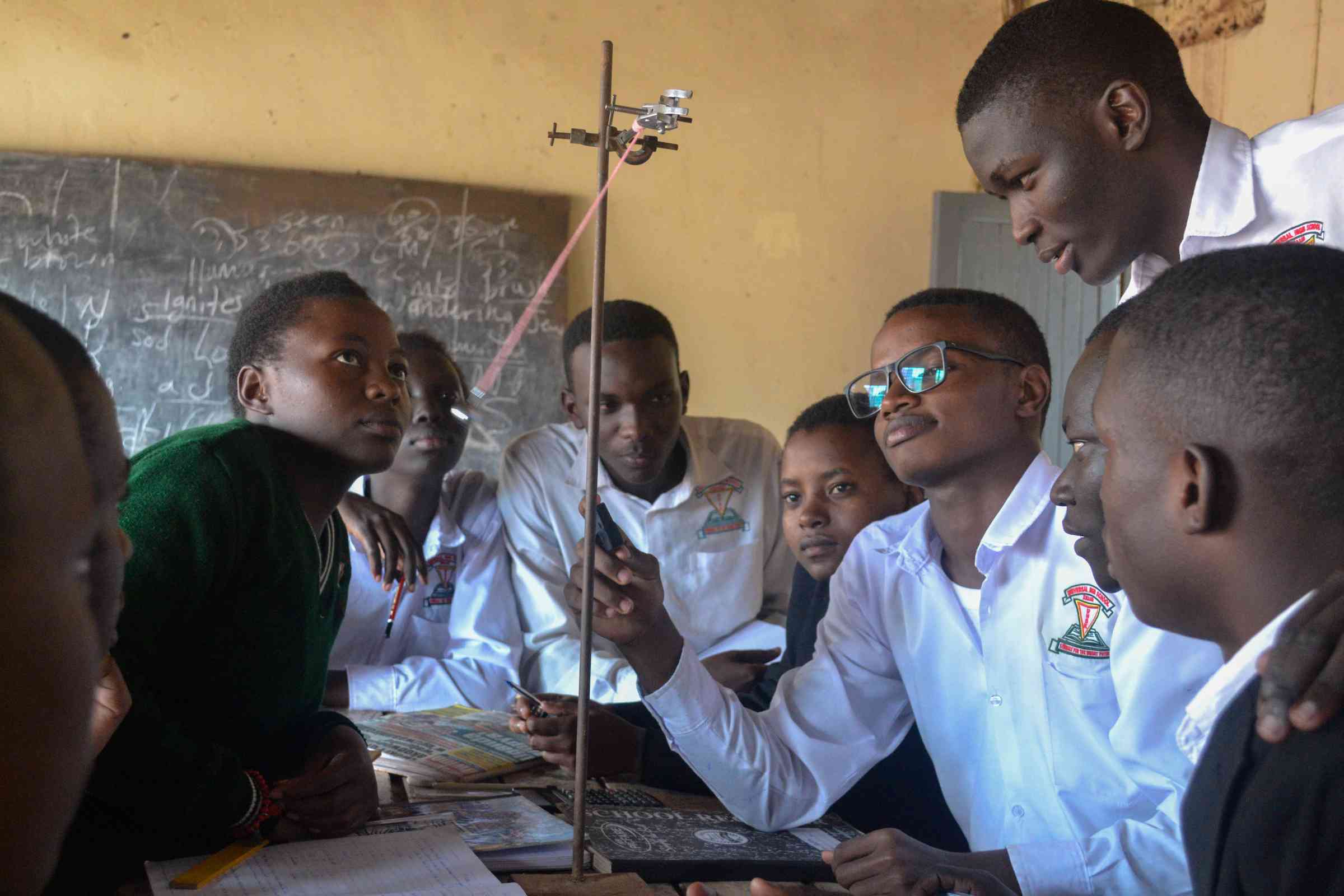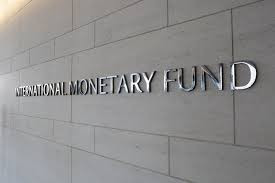
Avis Natukunda would still be in private school if it weren’t for a lack of teachers.
The aspiring economist needed to pass her exams to be able to go to university, but when she sought out her teachers, particularly her math teacher, to go over materials she didn’t understand, they were nowhere to be found.
So, in the middle of the 2023 school year, Natukunda, 17, asked her parents to transfer her from the private school she’d attended for four years to a public school.
“I worried about having to adapt to a new environment, a new culture and having to start afresh making new friends,” she says. “It took a bit of time for me to adjust.”
Natukunda blames the lack of access to teachers at her private school on a recent salary increase for those teaching in government-run secondary schools. Her math teacher was on campus at least four days a week before the increase, she says. After, he was only around twice a week.
“When I want to consult him, he is not available,” she says.
In 2022, the Ugandan government tripled or quadrupled public secondary school science teacher salaries, depending on the teacher’s level of training. Salaries for science teachers with two-year diplomas working full time increased from 900,000 Ugandan shillings (236 United States dollars) to 3 million shillings (788 dollars). Salaries for those with degrees, which take three to four years to complete, and who work full time increased from up to 1.2 million shillings (315 dollars) to 4 million shillings (1,050 dollars) per month.
The government raised their pay as part of a broader effort to improve science teaching and learning, increase the number of students, and encourage innovation in the sciences, says Aaron Mugaiga, secretary general of the Uganda Professional Science Teachers’ Union. The hope was that with higher salaries, public schools would retain more science teachers who would focus on teaching rather than working at multiple schools to make ends meet.
- ICASA assesses Zim conference host bid
- Uganda removes president's son from army role after Kenya invasion tweets
- Oil explorer projects bigger Zim find...as first test well drill progresses to 600m
- Uganda court hands life sentence to man caught with elephant ivory.
Keep Reading
Private school students, proprietors and teachers, however, say the raise has made it more difficult to hire and retain science teachers. Instead, they flock to public schools, which pay better. Biology and chemistry teachers are particularly scarce. Private schools say they can’t afford to incentivize teachers to work for them by matching the higher salaries, so they lose them to public schools. Currently, part-time science teachers in private schools earn 300,000 to 500,000 shillings (79 to 131 dollars) monthly. When adjusted to a full-time salary, the highest-earning science teacher in a private school earns one-third the salary of the lowest earning in government schools. Some schools have increased pay for science teachers but say it eats into their profits and ultimately increases costs for students and their families. Part-time teachers have become particularly difficult to hire because many were public school teachers who needed to supplement their income before the raise.
The Ministry of Education and Sports did not respond to several requests for comment.
Adam Mugarura Tusiime, the assistant commissioner of human resource management at the Ministry of Public Service, says the government plans to increase salaries for all teachers on its payroll, not just science teachers. He did not comment on the lack of teachers at private schools.
“We don’t control what happens in private schools,” Tusiime says.
There are more than 8,000 private secondary schools in Uganda, says Patrick Kaboyo, who runs a private school and is the secretary of the Federation of Non-State Education Institutions.
The schools face an uphill battle when recruiting and retaining science teachers, he says. They have nothing to offer during salary negotiations. Even science teachers who work part time in private schools set tough conditions, he adds.
“If they are to teach four times a week in school, they tell you they will come twice,” he says. “If you don’t want their terms, you can get another person.”
Brenda Niwagaba, head teacher at Universal High School Kisaasi, a private school, says she lost two biology teachers to public schools last year. Those that stayed have become difficult to manage, and her school had to get creative to retain science teachers.
Last year, they recruited three science teachers directly from university to train and mentor them. The new method worked. The new teachers work four days a week when previous teachers would only come in one and a half days a week.
Rahman Mutibwa, an administrator at the private Ahmadiyya Muslim High School, says many science teachers must work in more than one school to cope with the cost of living. Some private schools, including his, felt they had no choice but to increase teachers’ salaries despite not bringing in enough profit to break even and run effectively.
“If you don’t increase for them, you lose them,” he says.
He would not say how much his school increased science teacher salaries nor whether his school lost profit by doing so.
Even with more pay, there aren’t enough science teachers to go around. If they taught in one school full time, other schools would miss out on their services.
“If you close them up in one school, other schools won’t get teachers,” Mutibwa says.
Working part time at two schools isn’t ideal, especially for the students, says Kalifan Kiyaga, a physics and math teacher at Universal High School Kisaasi. Kiyaga works part time in another school, which he declined to name, to make up for the lower pay. He spends four days at Universal and three at the other.
Kiyaga says he’s applied to work in government schools over the years but is happy in private schools. He feels it would be too burdensome on students’ families to increase their pay. Despite being paid less, he loves his job and thinks students perform better in private schools.
“I enjoy it. It’s a service. I don’t do it for money, though,” he says.
James Njuki, 19, a student at Universal High School Kisaasi, thinks his teachers are trying their best given the circumstances. He’s adapted to not having enough time with his teachers, but it isn’t easy.
They are only at school three days a week and have full schedules, he says.
“When they move from one class, they go to another. So getting time outside class to consult them is not easy,” says Njuki, who aspires to study pharmacology at university.
To compensate, he tries to ask his questions during class time. When he does want to meet with teachers outside class, there is always a long line.
Njuki says he plans to stay in private school for now. However, he worries his parents will have to pay more in fees if the school hires more teachers or raises their salaries to keep up with government schools.
“My parents may find challenges having to pay. I may find myself ending the school term with a fees balance,” Njuki says.
The Federation is advocating that all schools have equal access to teachers, says Kaboyo, FENEI’s secretary. He and other private school proprietors are advocating for a public-private partnership.
“There should be efforts to create a pool of expert science teachers, so all public and private schools can tap from that pool,” he says.
At the public school she now attends, Natukunda says she has access to a math teacher every day of the week. There is more than one, and they are at school every day. Meanwhile, her friends at her old private school still struggle.
The government needs to come up with a way to ensure both private and public schools have access to science teachers, she says. “I feel for my friends in private schools.” -Apophia Agiresaasi, Global Press Uganda
- Apophia Agiresaasi is a Global Press Journal reporter based in Kampala, Uganda.
- Global Press is an award-winning international news publication with more than 40 independent news bureaus across Africa, Asia and Latin America.








